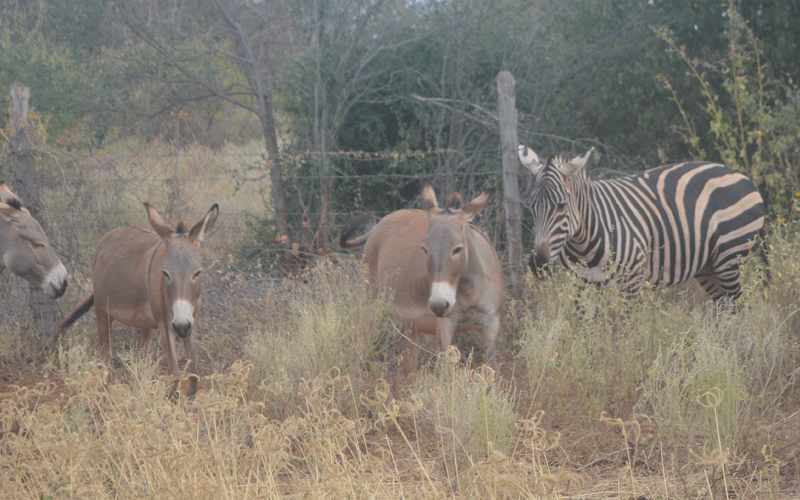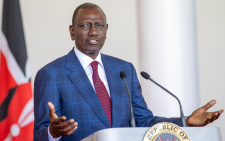Donkey owners petition the President to close abattoirs

Donkey-owning communities from 28 counties has called on the government to end donkey slaughtering in the country – arguing that the vice is having a negative economic impact on their livelihoods.
A petition signed by Alliance for Domestic Welfare Organization for Kenya (ADWOK), the lobby’s Chairman Titus Sagala, while addressing journalists argued that the commercialization of such abattoirs could have irreversible economic impact if nothing is done.
“In efforts to protect the loss of social-economic livelihoods of this communities as well as prevent and protect the donkey populations from an alarming rate of decline, we want the government through the Ministry of Agriculture to issue a gazette notice removing donkeys from list of declared animals for slaughter,” said Sagala.
Sagala added that it’s evident that the slaughter of donkeys in Kenya has negative consequences and a ban on the same is the best option right now so as to prevent and protect the donkey populations in Kenya from an alarming rate of decline.
He further said that donkeys are on the verge of going extinct in the country and poor households mostly depend on donkeys which have suffered immensely by being slaughtered.
In May this year, Kenyan Courts lifted prohibition for the slaughter of donkeys after the state failed to respond to an application challenging the legal notice.
The rate of donkey slaughter in Kenya is staggering at 5.1 per cent against a reproduction of 1.04 per cent, meaning that the country is slaughtering its donkeys five times more than it is able to reproduce.
It is now feared that if this trend continues – without government’s speedy intervention, then donkeys will be extinct by the year 2023.
Available figures show that about 1,000 of the domesticated member of the horse family are being butchered every day across the 4 slaughter houses across the country.
One donkey skin is sold in a Chinese market for about Sh50, 000, against Sh8, 000 or Sh10, 000 the original price of a breathing donkey. The donkey skins are being used to make gelatin for a product called ejiao, a product that has been used as a traditional Chinese medicine for thousands of years.
Other areas of concern will include the protection and conservation of donkeys both as work animals and a species, the socio-economic impacts of the donkey skin trade on donkey owning communities and service beneficiaries, animal welfare, disease control and environmental consideration (including environmental impacts of slaughter operations and compliance.
Other will include policy and legislation implications at regional and national levels including movement of animals and cross border aspects and compliance issues, donkey skin trade in the lenses of culture and religion as well as linkages between illegal donkey skin trade and other types of criminality including wildlife crime.












